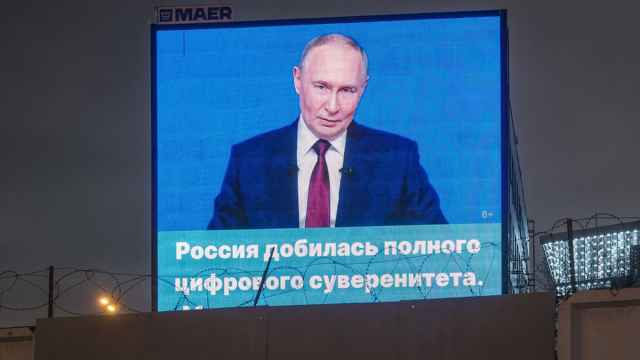
Alexander Lorenz
Chairman, Raiffeisen Pension Fund
Chairman, insurance & pensions committee of the Association of European Businesses in Russia
The term "mis-sold pensions" was coined in the early 1990s when the British financial market suffered a series of pension scandals that included misappropriated retirement savings at the Maxwell printing house and the National Bus Co., as well as millions of corporate pension account holders, who were tricked by over-enthusiastic agents into switching to private pension plans that turned out to be far less attractive because of higher fees. These events had a profound impact on the British pension market as pension legislation and regulatory oversight were subsequently revised and made more stringent.
Over the last three months Russia has suffered its own pensions scandal involving thousands of unsuspecting citizens who suddenly had realized that their individual mandatory pension accounts (so-called "OPS" accounts) had been transferred to a number of large private pension funds without their consent or knowledge.
So what exactly happened? Over the last two years in a bid to win a bigger market share, larger pension funds started using third-party agency structures such as insurance agencies and HR consultants to sell OPS pension products. In essence, the agents' task was to convince individuals to switch the savings part of their state pension from the state pension fund or other private funds to the pension fund that was paying them a commission. Some of these unregulated agents, however, seemed to have gotten carried away by easily earned commissions and in some cases stole and falsified data and even forged signatures. This led to many thousand individual pension accounts being transferred basically without the clients' knowledge or consent. Once the defrauded clients realized what had happened and complaints starting trickling into the various government agencies charged with oversight of the pension sector, the state pension fund took the unexpected measure of revoking the transfer agency license of three major pension funds that had apparently received most of the complaints and to which many accounts had been transferred.
Overall, this scandal could not have come at a worse time for the government, as it is trying to reform its financial regulatory system, creating one "mega-regulator," and is employing great effort and rhetoric to make Moscow an international financial center.
On the other hand, these events might be a blessing in disguise as they focus much needed public and government attention on the pension sector and might act as a catalyst for further reforms in this key sector. I believe that such further reforms are badly needed, as the Russian pension reform is considerably lagging behind its East European peer states. For example, Poland, with a GDP far smaller than Russia's, has two private pension funds ranked among the top 100 pension funds in Europe. Russia's largest fund (Gazfond) is ranked 122nd, thanks to the corporate pension plan it manages for Gazprom's 380,000 employees, rather than assets accumulated under the Russian pension reform. Russia's next largest fund, Blagosostoyaniye, ranks 351st.
To build up private pension assets more quickly, the pension sector badly needs a second wave of reforms, which should address the following issues:
- A clear commitment to privatizing OPS pensions. From the outset of the pension reform in 2002, the guiding principle seemed to have been that while pensions should be at least partly managed by private operators, the service provided to clients should remain a social function and the private operators working in this sector should not be driven by profit maximization but rather by social responsibility. This approach manifests itself in very low fees that operators can charge under the law and that should be urgently reviewed. While in other global pension markets private pension funds can charge fees on contributions and/or assets under management, in Russia non-state pension funds can only charge a 15 percent fee on investment income on OPS pensions, which is a rather unattractive proposition, especially in a volatile capital market such as Russia. Also, transfer agents can only charge a flat 4 ruble fee for processing an application from an individual. Such fees stand in stark contrast to the 15 to 20 minutes' processing time needed by a specialist (in a bank, for example) for each OPS client.
- A review of the legal status of pension funds. In line with the above-mentioned "social function," non-state pension funds are formally not-for-profit companies. Concepts such as paying dividends or otherwise remunerating investors for committing their financial resources toward a non-state pension fund are not even foreseen by legislation.
- Lastly, as the pension scandal clearly highlights, Russia needs a new approach to the intermediation of non-banking financial products (except for sales via banks, which has proved to work quite effectively). Third-party intermediaries for insurance and pensions products to date remain poorly regulated, and their operating environment remains confusing, impracticable and marred by major taxation issues. While insurance brokers are formally licensable, agents are not, and there is no industry specific qualification or mandatory training (e.g. sales ethics) for either.
For any capital market, a well-funded and well-functioning pension sector is vital in terms of long-term, non-speculative local funding. In my view, the above measures and the resulting local and foreign investment into the pension sector would do much more for Moscow as a global financial center than any additional skyscraper in Moskva-City could ever do.
A Message from The Moscow Times:
Dear readers,
We are facing unprecedented challenges. Russia's Prosecutor General's Office has designated The Moscow Times as an "undesirable" organization, criminalizing our work and putting our staff at risk of prosecution. This follows our earlier unjust labeling as a "foreign agent."
These actions are direct attempts to silence independent journalism in Russia. The authorities claim our work "discredits the decisions of the Russian leadership." We see things differently: we strive to provide accurate, unbiased reporting on Russia.
We, the journalists of The Moscow Times, refuse to be silenced. But to continue our work, we need your help.
Your support, no matter how small, makes a world of difference. If you can, please support us monthly starting from just $2. It's quick to set up, and every contribution makes a significant impact.
By supporting The Moscow Times, you're defending open, independent journalism in the face of repression. Thank you for standing with us.
Remind me later.





